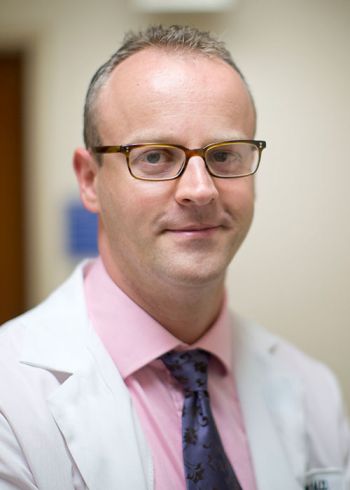
WASHINGTON (Feb. 29, 2016) — George Washington University (GW) Researcher Michael S. Irwig, M.D. published a first-of-its-kind survey assessing the attitudes and practice patterns of transgender care by endocrinologists, who often treat transgender patients with hormone therapy.
The survey, published online in Endocrine Practice, identified that while endocrinologists and other providers have received more education and training on transgender care within the past decade, self-rated comfort levels with discussing gender identity and/or sexual orientation and competency to provide transgender care is still rated relatively low. More research is needed on how to increase comfort levels and cultural competency among endocrinologists and other medical professionals.
The survey, which was conducted at a meeting for endocrinologists in the Mid-Atlantic region of the U.S. with 125 conference attendees, found that 63 percent of those surveyed were willing to provide transgender care, but the majority of providers had no current transgender patients under their care. Irwig also found that 50 percent of those surveyed had read the Endocrine Society’s transgender clinical practice guidelines – with 70 percent of those under the age of 40.
Finally, Irwig’s research found that only 20 percent were “very” comfortable in discussing gender identity and/or sexual orientation and just 41 percent described themselves as “somewhat” or “very” competent to provide transgender care.
“With more transgender patients in the health care system, my findings identified that more research and more training is necessary to provide much needed, culturally competent care to transgender patients,” said Irwig, associate professor of medicine at the GW School of Medicine and director of the Andrology Center at the GW Medical Faculty Associates. “The transgender community represents one of the most underserved and marginalized populations in health care. It is therefore up to the physician population to become more familiar with their needs and train the next generation to be culturally competent and prepared to treat this growing community.”
In 2009, the Endocrine Society’s guidelines helped to normalize transgender care within the specialty. However, little has been published on the attitudes and practice patterns of physicians, including endocrinologists, as it relates to transgender care.
“Progress has been made, but there is still more work to be done,” said Irwig. “More exposure to transgender patients during residency and more research on interventions to overcome discomfort in discussing sexuality and gender are needed.”


